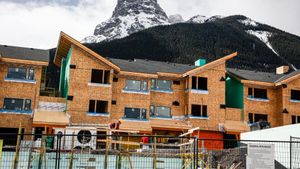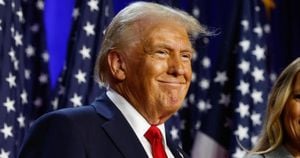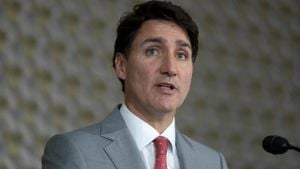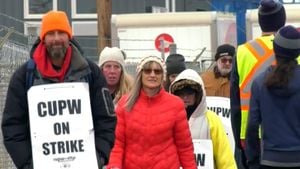Across the United States, colleges and universities are tightening their protest rules as students return to campus this fall. This surge of action follows last spring's wave of protests, particularly against the backdrop of the Israel-Hamas conflict, which led to heightened confrontations and drew significant public attention. With activists gearing up for renewed demonstrations, many college administrators are implementing new measures aimed at controlling the growing anti-war sentiments on campus.
Beginning with the California State University (CSU) system, the largest public university network in the nation, new policies were initially laid out on August 15. This was later echoed by the University of California (UC) system, with guidelines emphasizing restrictions on public assemblies. These measures, primarily aimed at curbing the type of protest actions seen last spring, include outright bans on encampments, overnight demonstrations, and any structures deemed unauthorized.
For many students, this marks the beginning of what could be years of passionate activism, particularly against the war in Gaza. After the October 7, 2023, attack by Hamas, protests erupted due to the ensuing military actions by Israel, which led to substantial casualties primarily among civilians. While schools aim to manage campus safety and promote uninterrupted learning environments, critics argue these policies infringe on students’ rights to free expression.
Minouche Shafik, the former President of Columbia University, resigned earlier this month following intense scrutiny over her handling of campus protests tied to the conflict. Following the protests at Columbia— where demonstrations intensified, leading to severe confrontations with law enforcement — Shafik's departure reflects broader tensions surrounding campus leadership and its response to student activism. Similar resignations have been seen at other prestigious institutions, including the University of Pennsylvania and Harvard University, highlighting the pressure university leaders face during times of campus unrest.
The CSU's policy outlines strict guidelines prohibiting tent encampments and other forms of overnight demonstrations. CSU spokesperson Hazel Kelly stated, “Encampments are prohibited by the policy, and those who attempt to start one may be disciplined or sanctioned.” This stance emphasizes the university's intention to promote access to university properties by all community members and to maintain campus safety.
UC President Michael Drake similarly stressed the need for clarity and uniformity in enforcing the updated protest guidelines. He directed campus chancellors to restrict protests and activities likely to disrupt campus operations, effectively mirroring the newly established CSU policies. Each campus still retains some discretion over the specifics of enforcement, which may include determining areas designated for public protests.
The American Association of University Professors (AAUP) expressed concerns about such limitations on free speech, arguing these changes could stifle open debate and expression on campus. Their recent statement asserts, “Our colleges and universities should encourage, not suppress, open and rigorous dialogue and debate even on the most deeply held beliefs.”
Under these new structures, campuses like the University of Pennsylvania and Indiana University have adopted similar restrictions, banning loud audio equipment after hours and limiting protests to designated times. This trend extends to several other institutions as well, including the University of South Florida, which now requires approval for many protest-related activities.
The recent changes are not without controversy; critics believe these measures risk creating environments where dissenting voices can be silenced. This caution against excessive restrictions reflects fears of repeating historical lows where safety measures led to widespread repression of expression on campuses. Risa Lieberwitz, from Cornell University, described the current situation as “a resurgence of repression on campuses,” drawing parallels with civil rights issues from previous decades.
Many students, undeterred by the new restrictions, remain determined to continue their activism. Fueled by the heavy toll the Gaza conflict has taken, with reports indicating thousands of casualties, students are rallying around the cause and organizing movements aimed at influencing their universities' policies toward the conflict.
Columbia University's and USC’s experiences serve as cautionary tales for the administrations at universities across the country. During recent protests, Columbia faced severe scrutiny when police were called to dismantle encampments and clashes ensued. Like many universities, they are examining their approaches to maintain safety without infringing on students’ right to protest.
With semester kickoffs set against this new backdrop of scrutiny and regulation, university leaders are under increasing pressure to establish environments where both safety and free expression can coexist. This balancing act remains fraught with tension; as students organize and mobilize, they grapple not just with the historical significance of their actions but their immediate impacts on their campuses.
Overall, these recent developments signal a cautious approach to campus activism. While deemed necessary by university leaders for safety and operational purposes, the restrictions on protests are reshaping the dialogue over free speech on college campuses nationwide. This semester may herald not only renewed activism but also renewed battles over the rights of students to express dissenting opinions.



